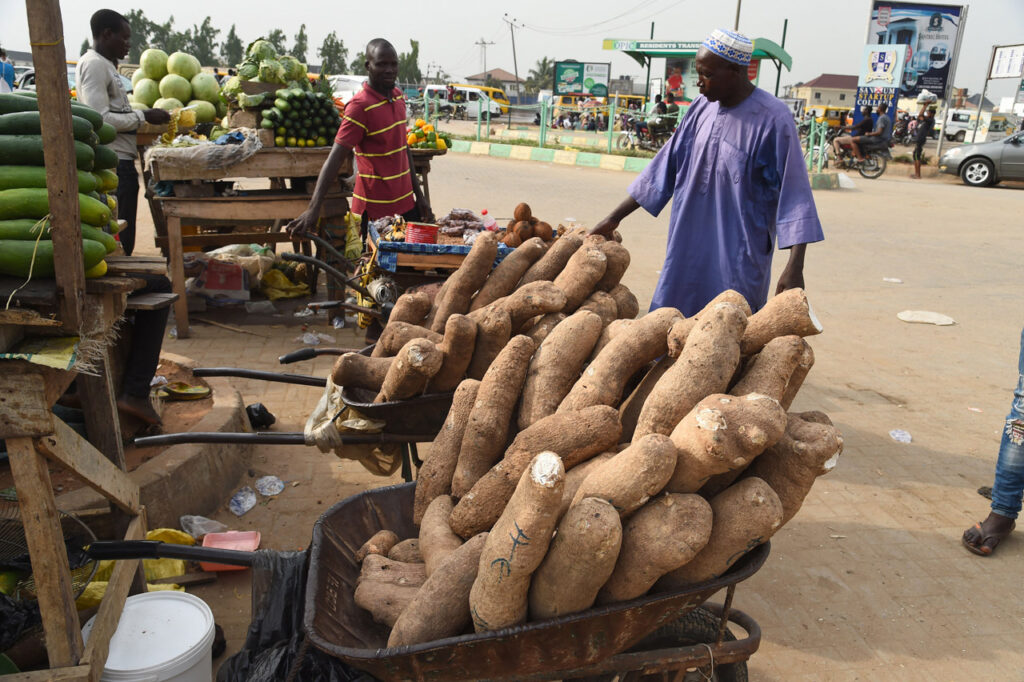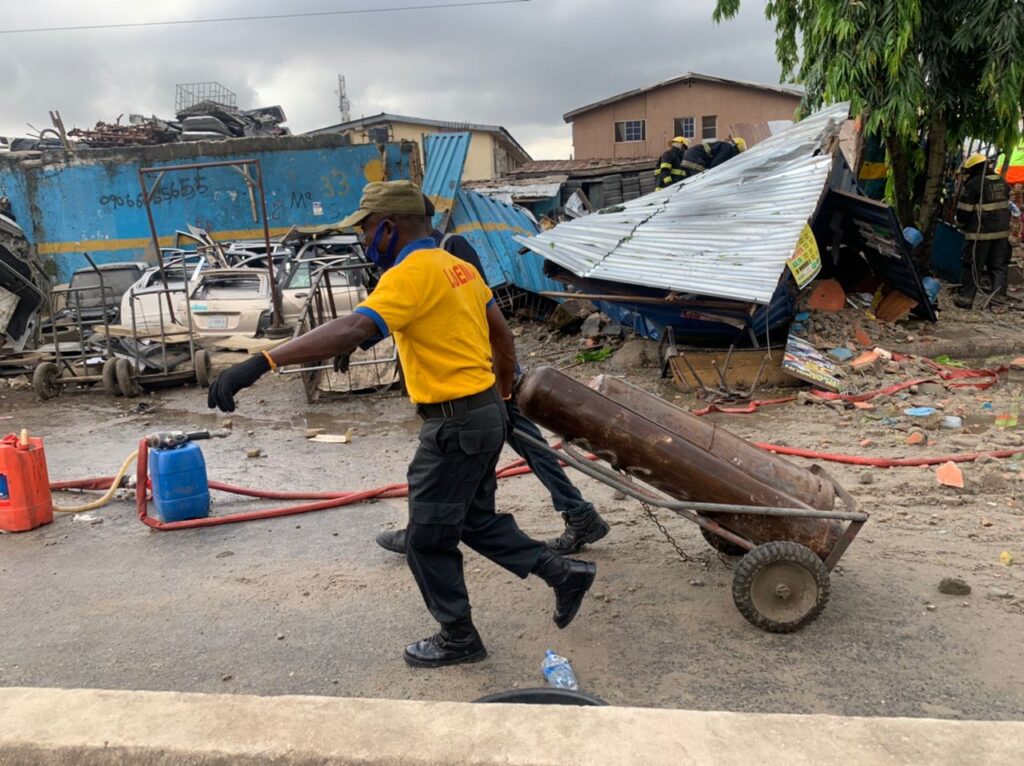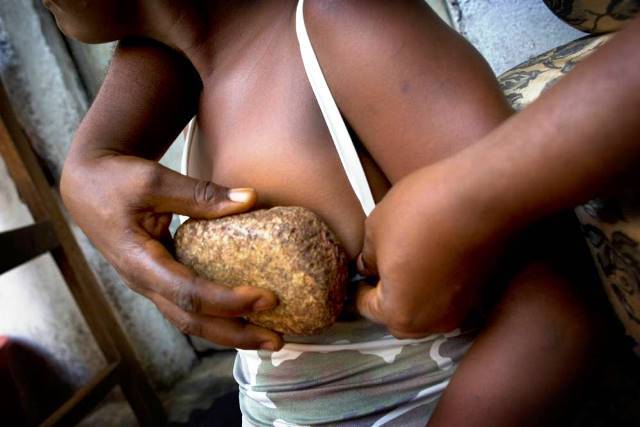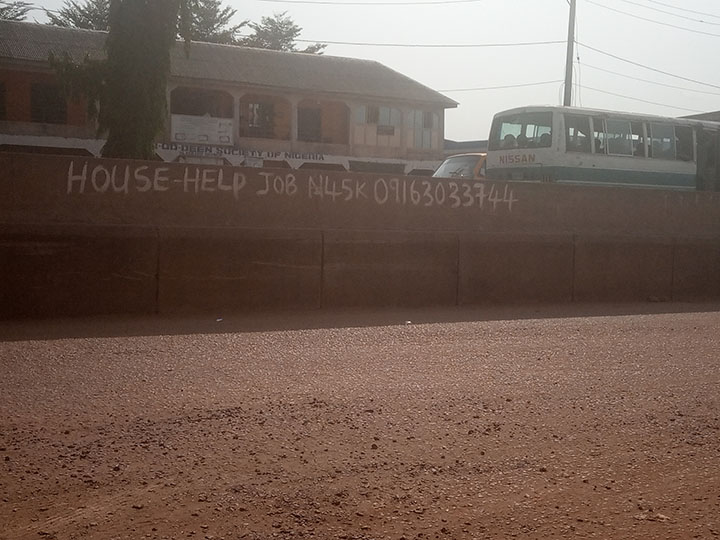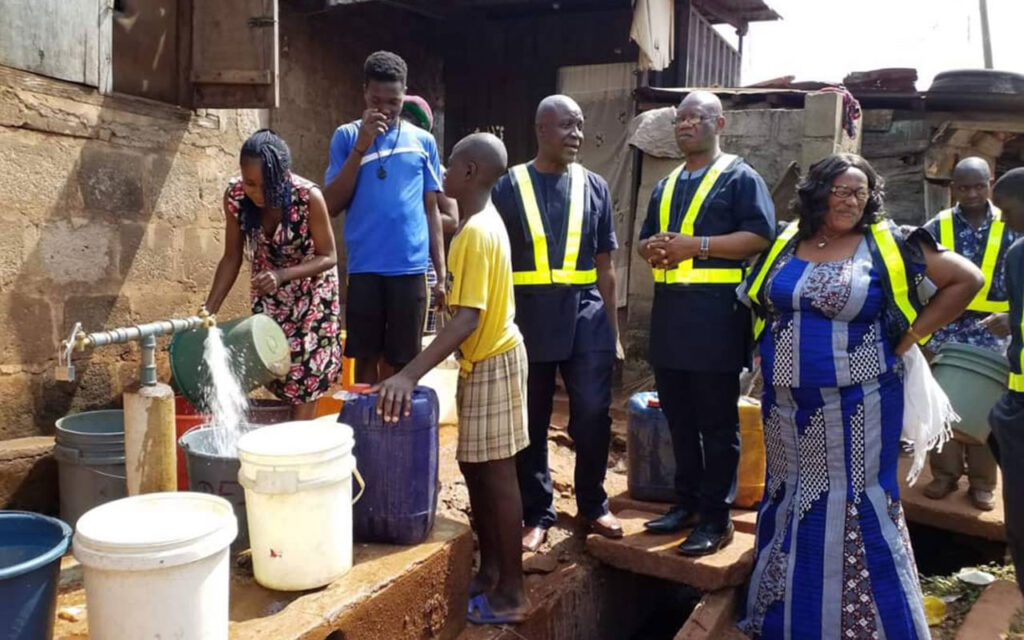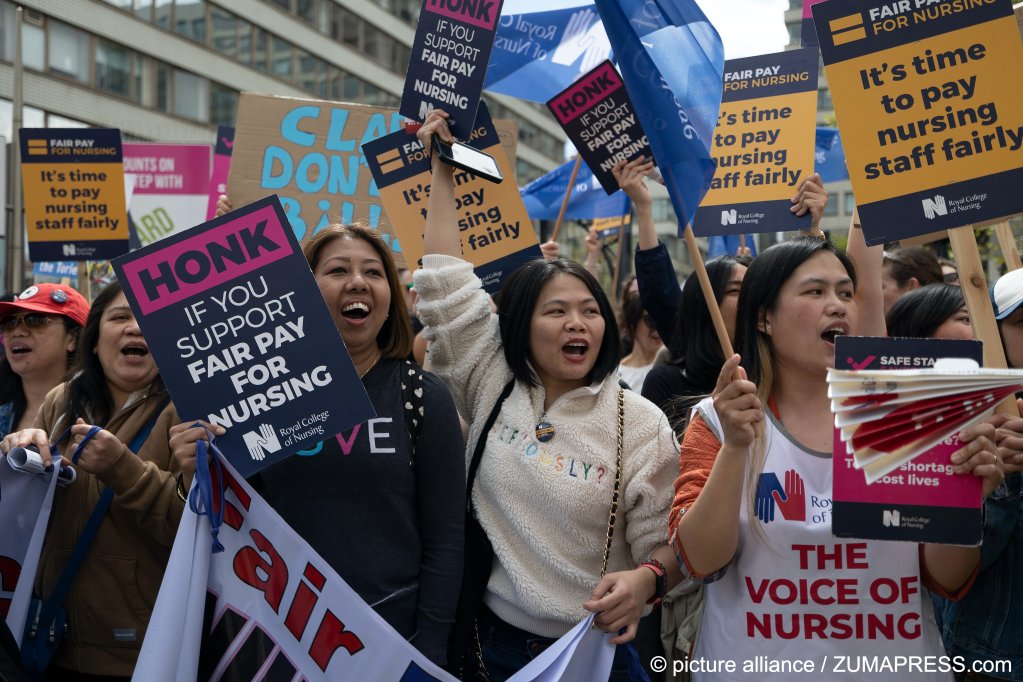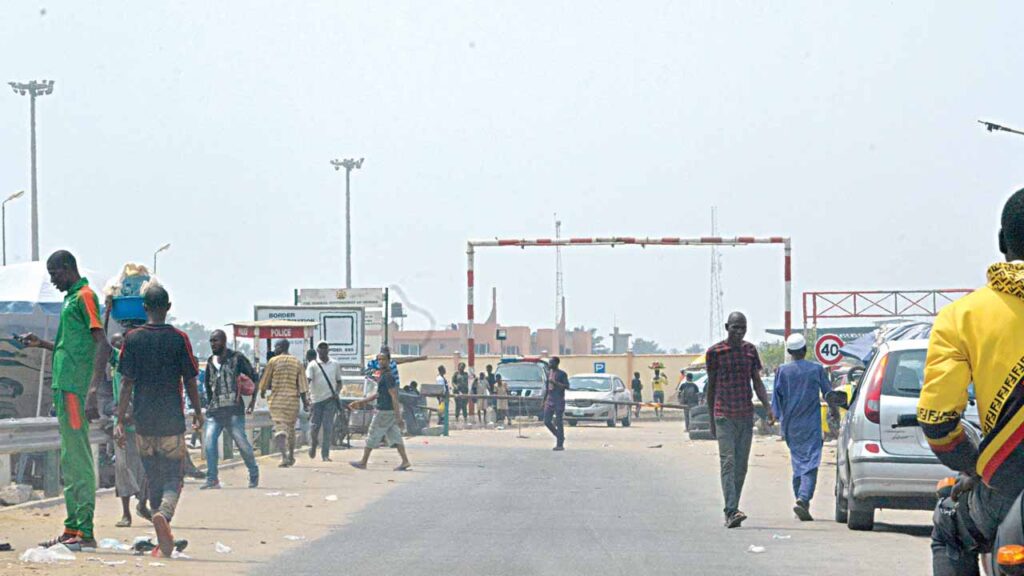
However, the phenomenon has failed to abate, as the Federal Government, between 1970 and 2000, reported about 7000 spills. Given the country’s weak regulatory oversight, as well as poor data gathering capacity, statistics of data spill is, according to many experts, inaccurate and mainly underreported. Amnesty International had reported that since 2014, Eni alone had about 820 spills in the Niger Delta accounting for about 4.1 million litres. Also, since 2011, Shell reported 1, 010 spills, with 110, 535 barrels or 17.5 million litres lost.
Oil spill has a catastrophic impact on the environment and the people’s health. It threatens livelihood, leaving generational impacts. When oil is spilt, plants and animals are killed. It affects salinity/pH levels, pollutes air, water and more. Marine birds and mammals, as well as fish and shellfish usually die.
The oil-producing region, reportedly, has a population of about 31 million people and about 40 ethnic groups including the Bini, Itsekiri, Efik, Esan, Ibibio, Annang, Oron, Ijaw and others. According to environmentalists, the region is the part of the country that consists of highly diverse ecosystems, which support numerous species of terrestrial and aquatic flora and fauna. While oil spillage threatens these species, the development is a direct danger to over 70 per cent of the communities, which rely on fishing and farmlands for their livelihood.
From 2011 to 2017 alone, only Shell and Eni spilt about 21.7 million litres of crude oil. In context, this is the equivalent of nine Olympic swimming pools. Olympic pools are 50 metres long, 25 meters wide, and 2 meters deep. In terms of volume, when full, these pools hold 2.5 million liters of water, or about 660, 000 gallons.
The National Oil Spill Detection and Response Agency (NOSDRA) recorded that as recent as between January 2019 and April 2021, a total of 12 states recorded 881 cases of oil spillage, with 77 per cent of the spills occurring in only three oil-producing states of Bayelsa, Delta and Rivers. Other states that are regularly affected by spillages are Akwa Ibom, Imo, Abia, Edo, Ondo and Lagos.
Although oil production and exploration take place across the world, the Niger Delta region is known globally for environmental disasters and degradation. While some of the big oil companies also explore oil in their countries and abide by extant regulations, they craftily circumvent Nigeria’s weak regulation, which places rent-seeking above the plight of citizens.
About a fortnight ago, a Federal High Court sitting in Abuja, ordered Mobil Producing Nigeria and its joint venture partner, Nigerian National Petroleum Corporation (NNPC) to, within 14 days, pay N81.9b to a number of communities in Ibeno Local Government Area of Akwa Ibom State, affected by oil spills between 2000 and 2010.
Justice Taiwo Taiwo awarded the damages against Mobil and NNPC in a suit filed by representatives of the communities, led by Obong Effiong Archianga. In his judgment, Justice Taiwo agreed with the plaintiffs’ lawyer, Chief Lucius Nwosu (SAN), that Mobil and NNPC were negligent in the way they handled oil spills that caused environmental degradation in the communities.
Taiwo came down hard on the NNPC for being interested in revenue generation from oil exploration activities at the expense of the lives of the people in the affected communities.
The judge also noted that although Mobil and NNPC carried out a cleanup exercise, they failed to address the compensation that would have mitigated the economic losses suffered by the people said to be mainly fishermen and farmers.
Earlier this year, a British Supreme Court ruling also ended a 13-year-old battle between Shell and some oil communities, when the court ruled that Royal Dutch Shell must be held accountable for massive oil spills in the Niger Delta in 2008 and 2009. The court ordered the oil major to pay farmers and communities compensations for the spill.
Failure Of Regulatory Authorities
WHILE similar litigations are scattered across Nigerian and international courts raising concerns about the questionable operations of IOCs, there are indications that oil communities are now taking their destinies into their hands, with the government seemingly blinded by investment inflow at the expense of helpless citizens.
Though investment inflow is necessary anywhere in the world, doing business in a sustainable manner ought not to be sacrificed. Investments from oil companies have sustained revenue inflow and provided benefits such as job opportunities and improvements to infrastructure but such benefits become worthless when they are earned at the expense of lives.
Everywhere in the world, the oil sector ought to be properly regulated given records of environmental concerns. The Department of Petroleum Resources (DPR), National Oil Spill Detection and Response Agency (NOSDRA), the Ministry of Environment and other agencies were specifically set up to ensure proper regulation of the sector. But cases of oil spills are rather getting worse. This signals gross negligence by the government to enforce extant environmental regulations.
By law, oil companies must close off oil spill sites within 24 hours of being notified of an oil spill on their fields. After this, a Joint Investigative Visit (JIV) ought to be launched to determine the extent of the spill. The team is usually made up of representatives of the affected community, that of the oil company, and relevant government agencies. But often than not, these procedures are not carried out.
According to the National Oil Spill Detection and Response Agency Act, a party that fails to report an oil spillage to the NOSDRA within 24 hours is liable to a daily penalty of N500, 000. Furthermore, failure to clean up the impacted site can result in a penalty of N1, 000, 000. But these stipulations are only on paper, as enforcement has been feeble.
NOSDRA was established in 2006 as an institutional framework to coordinate the implementation of the National Oil Spill Contingency Plan (NOSCP) for Nigeria in accordance with the International Convention on Oil Pollution Preparedness, Response and Cooperation (OPRC 90) to which Nigeria is a signatory. Indeed, compliance with environmental legislation in the Nigerian Petroleum Sector remains a mirage.
Courts To The Rescue Of Oil Communities
THE ruling against Shell earlier in the year, as well as the conviction against ExxonMobil along with the NNPC, apart from changing the global narrative around oil spillage, may provide succour for oil communities that have been at the mercy of IOCs for ages.
Though some experts are not convinced as to whether the convictions, especially the recent ruling, will be honoured, or appealed, it is yet seen as a landmark and an elixir for host communities. Recall that in 2008 and 2009, massive oil spills in the fishing town of Bodo, Shell had offered the community a paltry amount of $4, 000 as compensation. Litigations with Amnesty International as arrowhead, along with the Bodo community, however, forced Shell to admit that it made false statements about the size of the spills and agreed to settle out of court, eventually paying the munity £55m in compensation.
The decision to also sue some of the oil companies in their country is seen as becoming a tradition that could bring the majors to their knees. It would be recalled that while a London court rejected host communities’ case in 2018, stating that Royal Dutch Shell did not have sufficient control over its subsidiary company in Nigeria – the Shell Petroleum Development Company of Nigeria Limited (SPDC) – to bring it to trial in England, an appeal made in June 2020 by Nigerian farmers and fishermen turned the table around.
Foremost environmental activist, Nnimmo Bassey noted that courts in Nigeria have often made significant judgments as was the case in 2005 when the High Court in the case of Jonah Gbemre versus Shell, declared gas flaring illegal and an affront on the human rights of Iwerekhan Community. He, however, lamented that Shell and partners have ignored the judgment.
“This is the problem. Oil companies appear to have a penchant for disrespecting rulings by Nigerian courts and experts are found utilising technicalities to avoid honouring rulings and compensating polluted communities. They mostly pay attention to judgments delivered against them in their home countries. Nevertheless, this judgment is very significant and if Mobil takes the honourable route and pays up, the pains of the communities would be partially assuaged,” Bassey said.
He added that the judgment should provide encouragement for other contaminated communities to seek redress at the courts, adding that it doesn’t matter how long the cases may drag.
Bassey noted that there is likely going to be a deluge of cases since there are hundreds of oil spills every year, and only very few, if any, have ever been adequately cleaned.
The environmental activist stated that the judgments meant a lot to the suffering Niger Delta people whose cry for justice has often been met with indifference, or with utter violence as the case that led to the execution of Ken Saro-Wiwa and other Ogoni leaders.
“The judgment offers the people some hope that the peaceful fight for justice is true, to do the right thing by swiftly negotiating and compensating the people, and urgently remediating and restoring the environment.
“Our communities have borne the brunt of horrendous oil spills and gas flares over the decades, and now is the time for them to rise and demand for justice. They have a right to be respected and the continued pollution is also a criminal assault on nature. More suits should incentivise the polluting oil companies to curtail their misbehaviour,” Bassey said.
In the same vein, lawyers, human rights activists and civil society organisations (CSOs) in Rivers State described the judgment as “a positive one that would encourage other Niger Deltans to seek reprieve through the courts.”
A lawyer and the acting Executive Director, Environmental Rights Action and Friends of the Earth Nigeria (ERA/FoEN), Chima Williams, said the implication of the judgment is that it has emboldened the people to push for justice.
He recalled that the January 29 London judgment, which ordered Shell to pay compensation to Niger Delta farmers further spurred host communities to take their issues to court, adding that penultimate Monday’s judgment in Nigeria is another milestone.
He said, “As a lawyer, this judgment will encourage victims of oil spillage to, rather than resort to self-help, take the judicial option. It may delay, but through perseverance, certainly one day, justice will come. This has reawakened the consciousness of all environmental justice campaigners all over the world to the reality of benefits accruable to a consistent, focused and dogged struggle. If not today, tomorrow may provide the needed victory to get everyone pushing on.”
Similarly, the Executive Director, Youths and Environmental Advocacy Centre (YEAC), Fyneface Dumnamene Fyneface, said that the Abuja High Court judgment against NNPC/Mobil in favour of Ibeno and other communities in Akwa Ibom would propel many affected communities in the Niger Delta to seek reprieve in courts against oil companies and government agencies.
He said: “In February 2021, there was also a ruling by the UK Supreme Court that Niger Delta communities can sue Shell in that country. These judgments and rulings have stimulated and encouraged communities to seek redress over spillages in their communities. After the UK Supreme Court ruling in February, YEAC had been approved by communities to help take their cases against Shell, and Agip to their home countries.
“The most recent being Egbemo-Angalabiri Community in Ekeremor Local Council of Bayelsa State where the oil spill occurred on June 17, 2021, and the community is already preparing for a court case against Shell.”
He added that favourable judgments are discouraging sabotage of oil facilities and communities are looking out for spills from equipment failure to enable them to seek redress and compensation in court like others.
Also, Celestine Akpobari, an Ogoni environmental activist recalled that the Niger Delta has been under serious threat since the 1950s when multinationals commenced oil-mining activities in commercial quantity.
He said while oil has contributed just a little to the social and economic development of the region and the country because of massive corruption, its associated hydrocarbon and spills have threatened the environment, livelihoods and health of farmers, fishermen and other members of the society more than anything else.
On FG’s Promised Clean-up Exercise
FOR Bassey, the Ogoni Cleanup has been slow, not due to funding issues but capacity, adding that it would probably pick up speed if the bigger sites were contracted out to companies with higher capacities.
“Happily, the Hydrocarbon Pollution Remediation Project (HYPREP) was designed to deal with hydrocarbon pollution anywhere in the nation, starting with Ogoni land. The government can illustrate its willingness to extend the cleanup process to other polluted communities across the Niger Delta. This is what should be done right away. The United Nations’ Decade of Ecosystems Restoration is a good window to do the needful and by so doing safeguard our biodiversity, human health and livelihoods,” he noted.
Professor of Law and Director, Institute for Oil, Gas, Energy, Environment and Sustainable Development (OGEES Institute), Afe Babalola University, Damilola Olawuyi noted that the growing insistence of courts on awarding substantial damages to communities and persons affected by environmental pollution from oil and gas activities and projects remains a wake-up call that should prompt oil and gas companies, and their lawyers alike, to seriously consider the wisdom of early compliance with environmental and human rights requirements in oil and gas investments and projects.
Olawuyi noted that nearly all cases of conflict over environmental harm arising from projects executed without proper consultations with the local communities, adding that the communities were not generally opposed to oil and gas investments, or projects, other than the fact that they now know, and insist on their rights to live in a safe, healthy and sustainable environment.
“This is a right that has been increasingly elaborated in international, regional and domestic laws, especially those relating to business and human rights. To avoid legal and litigation risks arising from oil and gas production, oil and gas companies must immediately reevaluate their corporate risk management processes to ensure safe and environmentally responsible development across the entire value chain of their operations.
“The incorporation of human rights standards and requirements into the design, approval, financing and implementation of oil and gas investments and projects could foster a more amicable relationship between host communities and oil and gas companies, while also reducing their exposure to legal and human right risks,” Olawuyi, a Senior Advocate of Nigeria (SAN) and Vice-Chair, International Law Association, said.
The expert stated further that the increased recognition of corporate obligations relating to environmental protection must force oil and gas companies to protect, respect and fulfil human rights norms relating to the environment in their spheres of operation.
Describing the judgment as a landmark, he noted that the move would open a floodgate of possibilities for host communities that have over the years faced substantive and procedural challenges in asserting their right to a safe, healthy and sustainable environment.
“Some of these communities have over the years lost hope in the Nigerian judicial process and have resorted to filing lawsuits in the United States, The Netherlands and the United Kingdom. This ruling provides a timely reassurance and encouragement to host communities that the remedies they desperately seek can indeed be accessed locally at home. Host communities will now have greater confidence to approach Nigerian courts whenever they see their environmental rights being trampled upon by unsustainable production processes,” he said.
Olawuyi added that through the innovative programme of the HYPREP, a lot of progress has been made by the government to clean up and restore polluted lands across the Niger Delta.
He said: “However, considering the sensitive nature of the affected lands and ecosystems, and the several years of eroded trust and adverse socio-economic impacts in affected communities, time is of the essence. Ongoing remediation efforts will need to proceed faster and in a more ambitious manner in order to ensure timely and effective intervention that will restore confidence in affected communities. Many of these communities have coped with pollution and environmental injustice for many years, and therefore understandably desire the urgent restoration of their lands and livelihoods so they live life to the fullest.”
Managing Partner, Chancery Associates Solicitors, Emeka Okwuosa, said the judgment by the court remained commendable and proactive, adding that oil-producing communities have been suffering immensely from oil spillage.
“I am sure they will appeal the judgment. The Government has not been serious and proactive in respect of regulatory measures to avert and forestall oil spillage. It has been observed more in breach of extant provisions,” Okuwosa said.
He insisted that the government is only paying lip service to oil spillage, stating that there was a need for government to become more empathetic to oil communities and take necessary and requisite steps to call the oil companies to order.
“They should intensify regulatory oversight over oil companies in respect of oil spillages. Let’s hope government wakes up from their slumber,” Okwuosa said.
Remediation For Affected Communities
PROF. Victor Chukwudi Kogah, a former Federal Commissioner who represented Imo State on the Niger Delta Development Commission (NDDC) Board between 2000 and 2004, hails from Egbema, Ohaji Local Council of Imo State, where oil spillage occurs occasionally.
He stressed the need for immediate payment of compensation and remediation of communities that have suffered degradation.
Kogah said: “Oil spillage has a negative impact on oil-bearing communities. So, my thinking is that should there be any spillage, there should always be immediate remediation. That remediation will not mean compensation. After remediation, the community should be compensated, because the impact is devastating, in terms of farming.
“On the crops, the soil will never see any good yield in terms of harvest, and aquatic lives, people in such areas will suffer a lot. It is just like a disaster and enough compensation should be made available to the sufferers. People have to live and the way they live is determined by how you compensate them. They would have to look for alternative ways of living because the productivity of the soil would have been reduced to zero.”
Kogah stressed that the effects of spillages often make fishermen have no fish to catch because the aquatic animals would have been suffocated with no oxygen for them to survive.
“Government should ensure that any area that has such spillage should be adequately compensated. I think it is reasonable to do that for the survival of oil-producing areas, as the people have to look for alternative means of survival.”




